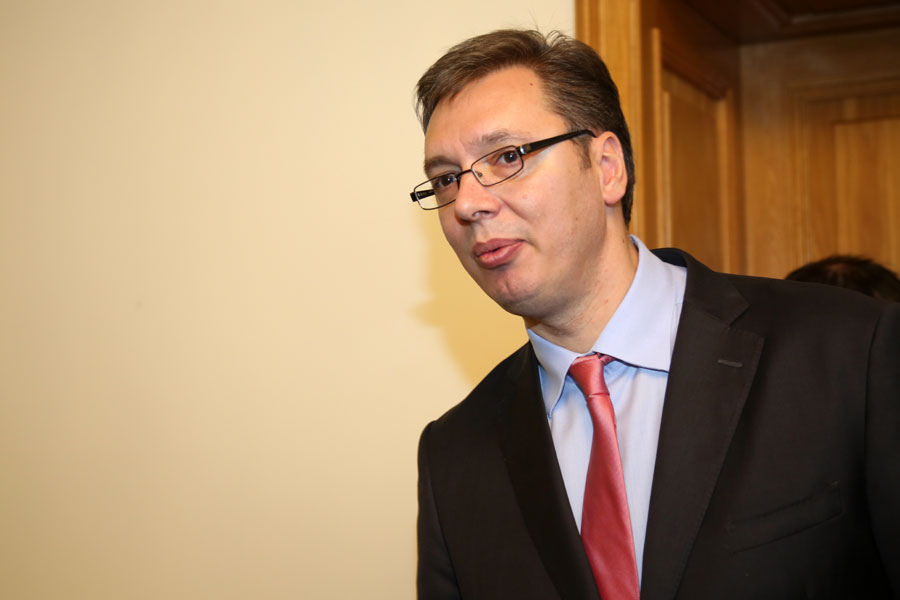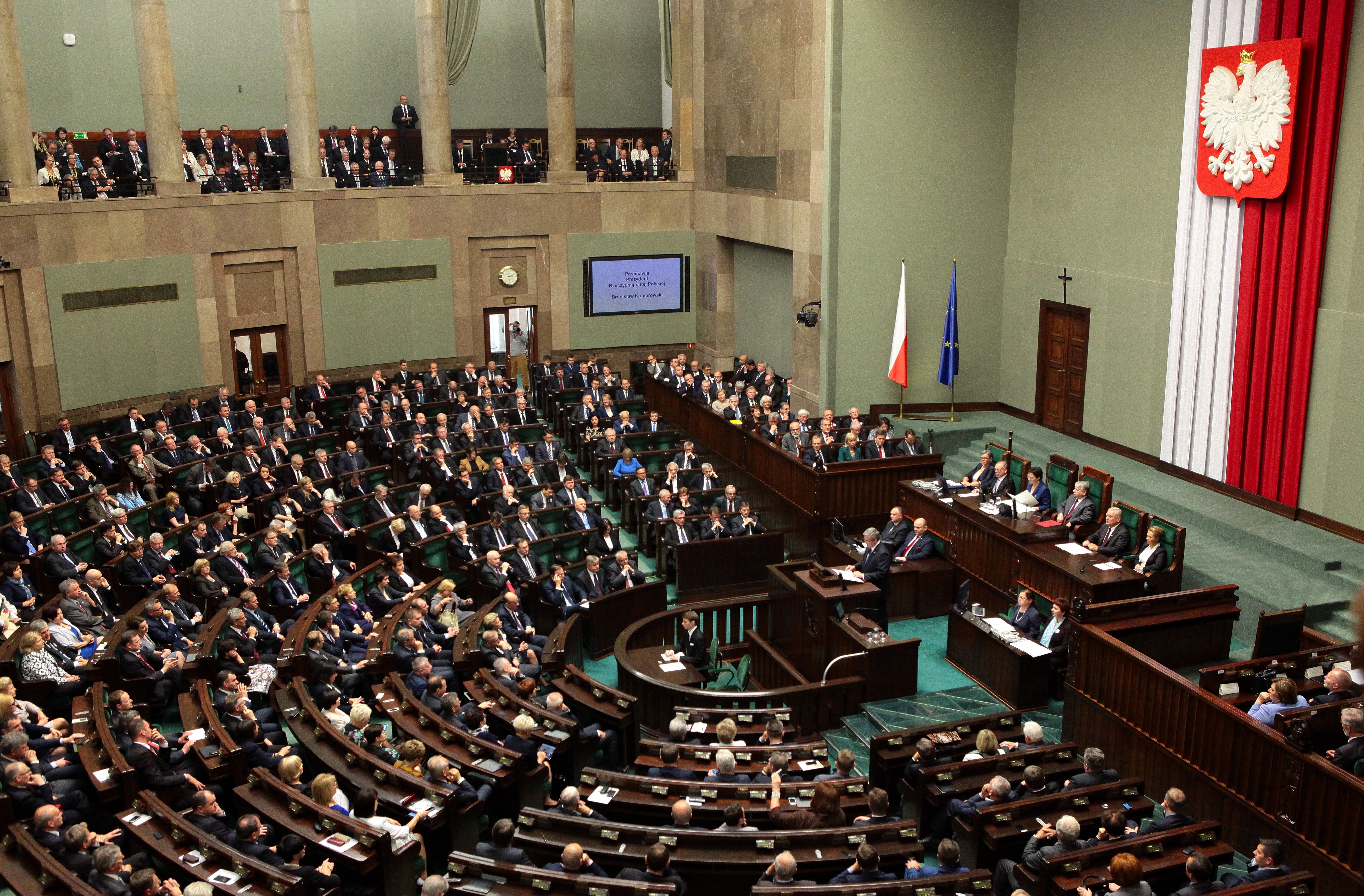Poland/Belarus – On Wednesday, the Polish Senate passed an amended version of a bill to allow the construction of an anti-migrant barrier on the border with Belarus. It is already known that the barrier planned to stop the migration wave orchestrated by Alexander Lukashenko’s regime will cost 1.6 billion zlotys (some 360 million euros) and will run along the border with Belarus over a distance of 200 km by mid-2022. It will be a 5.5-metre-high barrier, to which Polish officials and media often refer as a “wall”, although its form is not yet precisely defined. It may vary from place to place. It is known, however, that it will be equipped with the necessary electronics to detect crossing attempts. While the vote in the Sejm showed that PiS had a comfortable majority for this barrier, far beyond its own ranks, Donald Tusk’s liberals and the left voted against it. But even in the Senate, where the government does not have a majority, a motion to reject the entire border barrier bill was defeated, because part of the opposition chose to support the bill as it had in the Sejm, albeit with some amendments. On 29 October, the Sejm definitively adopted the law after having rejected most of the Senate’s amendments.
In the meantime, Defence Minister Mariusz Błaszczak announced on 25 October that the number of soldiers deployed at the border to support border guards would be increased from 7,500 to 10,000. Since the beginning of September, a state of emergency has been in force along a strip a few kilometres wide (usually three) along the border, with a ban on access for non-residents (except for visits by close relatives), including journalists and members of NGOs.
Lithuania, on its part, has already started to erect a 4-metre-high fence along its border with Belarus.
Since the beginning of the year, Poland has recorded more than 27,000 illegal crossing attempts along its 418 km-long border with Belarus, including more than 16,000 in October. Many of the illegal immigrants are pushed back or simply prevented from crossing, despite increasingly frequent attempts by groups of several dozen migrants to force their way through. The border guards have claimed to recognize Belarusian plainclothes border guards in those groups, and that they were cutting the Polish barbed wire. The Poles have more generally observed that their Belarusian colleagues actively coordinate and support the illegal crossing attempts. On Sunday, 24 October, a group of about 60 very aggressive people tried to force their way through, injuring two Polish soldiers (one was struck with a stone in the face and the other was hit with a branch). They were assisting the border guards in their effort to stop the crossing attempt. Both men had to be taken to hospital.
Some of these migrants manage to get through. Over 2,000 illegal immigrants have been arrested in Poland since January, and about 1,700 are currently in closed centres (out of a total capacity of 2,000 in the whole country). On 19 October, a group of nearly 200 illegal immigrants managed to cross into the Czeremcha district of Podlaskie. It was the biggest successful attempt on record. Every day, the Polish Border Guard posts its figures for the previous day on its Twitter account. On Wednesday, 27 October, it noted 573 attempts of illegal passage. Of these, 6 Iraqis were arrested, 40 people passed through and were turned back, and the rest failed to cross the border. Every week, the Polish media report the arrest of groups of migrants and smugglers on the roads between Belarus and Germany. In a recent radio interview, the commander of the Border Guard of the Podlaskie voivodship explained that of those intercepted, about half have Iraqi passports with Belarusian visas, while the others are generally undocumented. He also said that all those intercepted in Poland are being held in closed centres awaiting deportation, several hundred having already been sent back to Iraq. As in 2015 in the Balkans, they are mainly young, healthy men, and there are few women and children among them.
Faced with what the Poles call a Belarusian “hybrid” attack, the Border Guard is recruiting and has no difficulty in finding candidates, as since the beginning of September there has been increased willingness among young people to join this paramilitary service. A poll published on 12 October showed that 85% of Poles consider the current migration wave to be a hybrid war waged by Belarus and 55% are in favour of building a permanent barrier to stop the immigrants, despite the first recorded deaths of illegal immigrants due to increasingly cold temperatures at night in forests. However, another poll published on 27 October shows that a majority of Poles would like journalists and NGO activists to have access to the border area.
Support for the Morawiecki government’s policy against illegal immigration remains strong, while – like in 2015 at the Hungarian border – immigrants trying to cross the Polish border mostly want to go to Germany or another Western European country, as can be seen in this video shot by Polish border guards with Middle Easterners repeating “Germany, Germany, Germany”:
https://twitter.com/Straz_Graniczna/status/1447852238672646148
The commander of the Podlaskie Border Guard confirms that no intercepted illegal immigrants apply for asylum in Poland before being placed in a closed centre pending their repatriation.
Like Polish political leaders, the German Interior Minister makes Russia ultimately responsible for this Belarusian policy of encouraging Iraqis and others wishing to emigrate illegally to Europe to travel to Belarus and then attempt to cross the EU border through Poland, Lithuania or Latvia, or even via Ukraine. Germany is also affected, since those who manage to cross into Poland then move on further west. Berlin has recorded some 6,000 arrivals from Poland this year, more than half of them in October alone.
Most of the illegal immigrants are from Iraq, but there are also Syrians, people from other Middle Eastern countries and people from sub-Saharan Africa, who fly into Belarus and are then transferred to the EU border. Iraq has suspended direct Baghdad–Minsk flights under EU pressure, but other airports in the country provide direct connections with Belarus, and it is also possible to fly via Dubai, Turkey, Lebanon and Ukraine.
In Germany, there has even been talk of closing the border with Poland, which was first demanded by a police union, but in the end it has only been agreed to have joint German–Polish border patrols. At the same time, the German government has expressed its support for the Polish policy of protecting the eastern border, in contrast to Berlin’s attitude towards Hungary in 2015.
Belsat television, which broadcasts in Belarusian from Poland, published on 11 October pictures and videos of groups of people boarding for Belarus at several airports in the Middle East, as well as images of immigrants crowded into Minsk airport or wandering in various places in the Belarusian capital. As can be seen from these images, for the time being it is Belarus itself that has to bear the visible presence of the immigrants it brings in.
Visiting the Élysée Palace on 27 October, Polish President Andrzej Duda heard words of support from his French counterpart, who nonetheless, like the President of the European Commission, rejects any idea of EU funding for the construction of barriers along the block’s external borders. The French Secretary of State for European Affairs, Clément Beaune, who has been very vocal in the media, says he is against such a barrier, while continuing to call almost daily for financial sanctions against Poland if Warsaw does not step back in its dispute with Brussels. On the day of Duda’s visit to Paris, the ECJ imposed a penalty payment of €1 million per day on his country until Warsaw backs down on its justice reforms, while at the same time the European Commission continues to withhold recovery plan funds intended for Poland.
One might wonder whether there is a link between the EU’s eagerness to place sanctions on Poland and the latter’s efforts to repel migrants at its eastern border.




